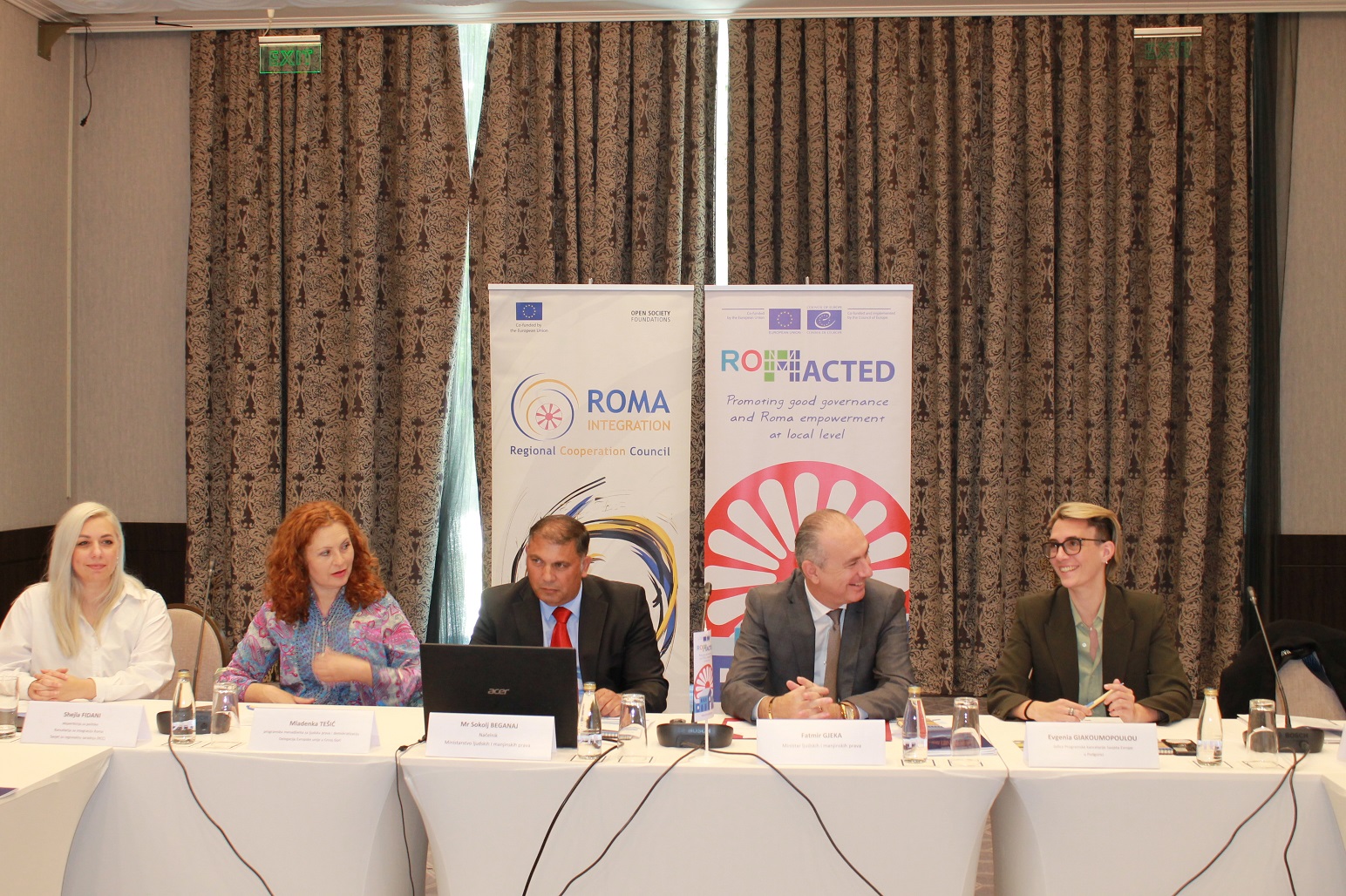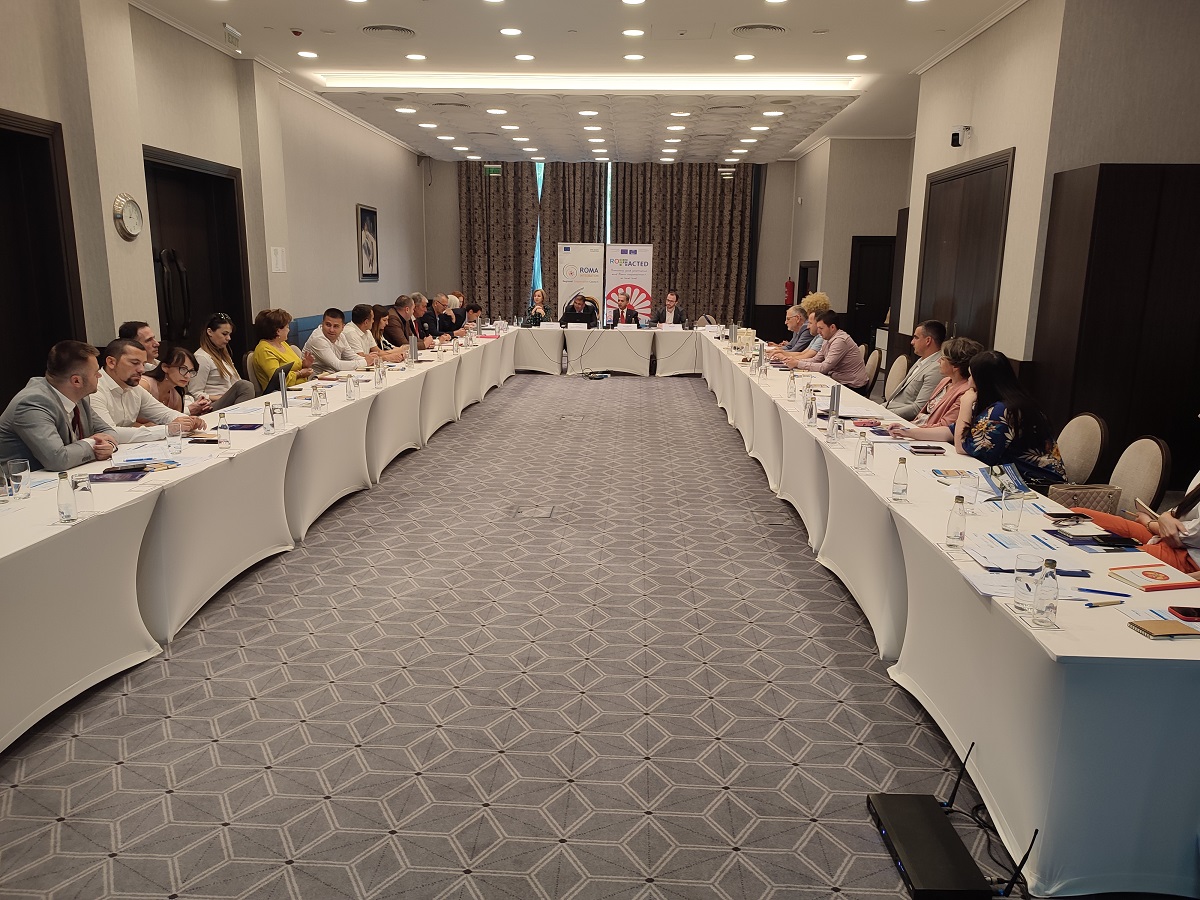A meeting on improving budgeting for Roma and the Egyptians at the local level was held on 13 June in Podgorica. The event was organised by the Council of Europe Programme Office – through the joint EU-CoE ROMACTED Phase II Programme, the Ministry of Human and Minority Rights, and the Regional Cooperation Council (RCC) - Roma Integration project.
The meeting aimed to build a common understanding of the Roma Responsive Budgeting concept of the municipal administration and institutions at the central level. It was done by presenting this concept and its importance and discussing the preconditions for its implementation and the support needed by municipalities.
"One of the basic goals of the Government of Montenegro and the relevant ministry is the full integration of all minority peoples and minority national communities into social life. We will help local authorities integrate measures for the Roma and Egyptian communities into regular policies and budgets, increasing the participation of their representatives in designing, implementing and monitoring policies and projects related to their integration," said Fatmir Gjeka, Minister of Human and Minority Rights at the opening of the meeting. The Minister emphasized that international partners, the Council of Europe and the Delegation of the European Union to Montenegro, are great and immeasurable support in that process, in financial and expert terms.
Evgenia Giakoumopoulou, Head of the Council of Europe Programme Office in Podgorica, reminded that the Council of Europe bases its activities within the joint programme with the European Union ROMACTED on the human rights approach. It is also at the heart of the concept of Roma Responsive Budgeting. "The purpose of applying this concept is to harmonise the policies of empowerment of Roma and Egyptians with the financial resources needed for their implementation. It contributes to better integration because it considers Roma and Egyptians' real needs when creating and conducting budget policy. Within the ROMACTED programme, we will strive to work on implementing Roma Responsive Budgeting at the local level and providing support to our partner municipalities in this process through planned trainings, development of guidelines, and mentoring," said Ms Giakoumopoulou.
Responsive budgeting for Roma does not differ from other institutional budget planning, but it is intended primarily for the line ministries responsible for the priority areas for Roma integration and most importantly for the Ministries of Finance. These institutions need to be able to recognise and provide an appropriate response to the potential for promoting Roma integration when preparing and adopting policy proposals and concrete measures, whether they are mainstream socioeconomic policies or policies specifically targeted at Roma. "The ultimate aim is to ensure equality for Roma by reducing the socioeconomic gaps between Roma and the rest of society. The Poznan Declaration foresees the obligation of the goverments to implement regional standards on public budgeting, secure and increase the public budgeting, both central and local, and ensure that the outcomes of the mainstream and targeted policies will advance the status of Roma", said Sheila Fidani, Policy Expert, Regional Cooperation Council Roma Integration.
Mladenka Tesic, Programme Manager for Human Rights and Democratization, Delegation of the European Union to Montenegro, stressed that, although the position of Roma in Europe and Montenegro has improved somewhat, especially in the field of education, we still have a long way to go to achieve equality for Roma concerning the majority population. Many Roma faces discrimination, antigypsyism, and socio-economic exclusion. She added: “As EU funds are most often used to finance Montenegro's strategic decisions on the road to the European Union, it is very important that these strategic commitments and programmes are planned in the budget at the national and local levels. In this way, introducing Roma Responsive Budgeting would mean that we have a clear picture in the phase of planning, implementation, and monitoring of results in various policies aimed at improving the position of Roma.“
Continuing the meeting, The Ministry of Finance and the State Audit Institution presented the concept of Roma Responsive Budgeting and its importance. The meeting was also attended by representatives of the secretariats in charge of drafting budget decisions and implementing local action plans for social inclusion of Roma and Egyptians from partner cities/municipalities involved in the implementation of the ROMACTED programme: Podgorica, Bar, Berane, Bijelo Polje, Herceg Novi, Niksic, Tivat and Ulcinj. The preconditions and necessary support for implementing Roma Responsive Budgeting were discussed with them.








